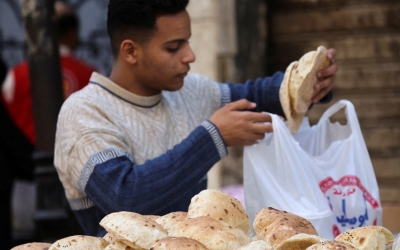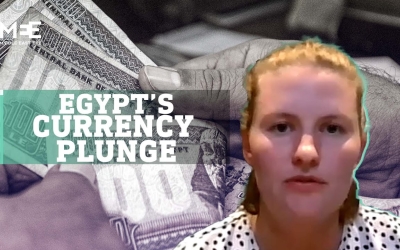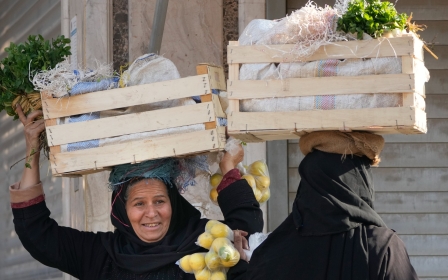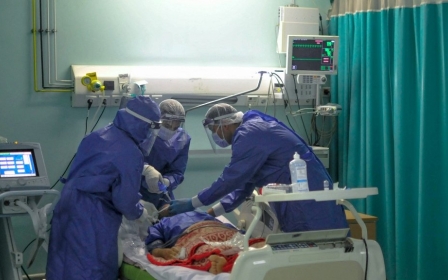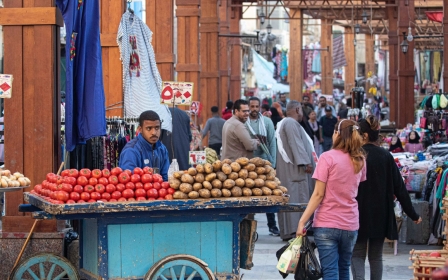Devaluation of Egyptian pound strains university students
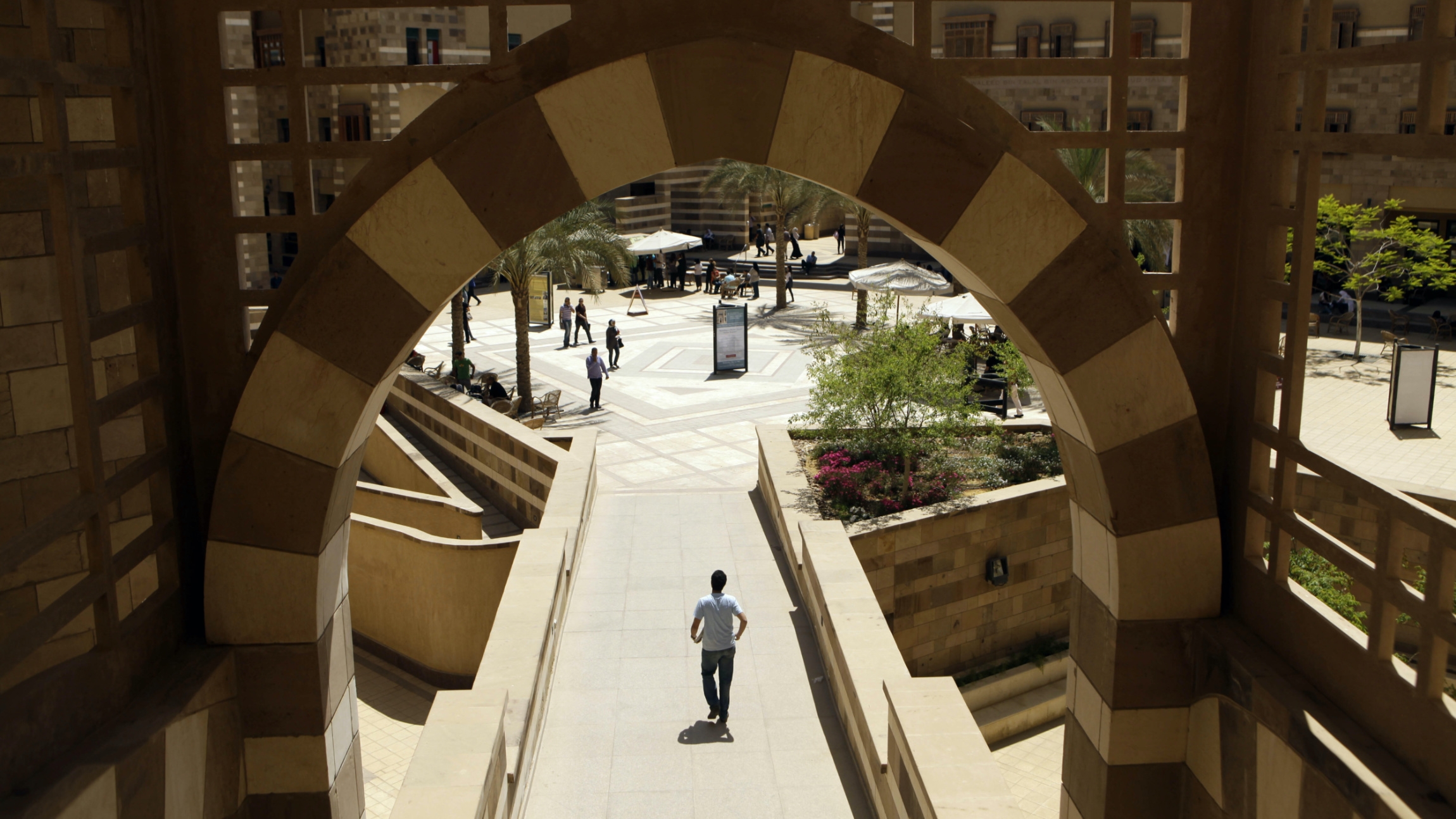
Dozens of American University in Cairo (AUC) students have staged several protests against the rise in tuition fees, echoing outcries by other Egyptians against the toll the deterioration of the Egyptian pound is taking on their lives.
AUC is by far the oldest international university in Egypt. The prestigious university, a non-profit institution established in 1919, charges its students in US dollars.
It has mostly been the preserve of the children of the middle class and the rich in Egypt and the Arab region, even as the university offers a large number of scholarships to outstanding secondary school graduates in Egypt.
Nevertheless, the devaluation of the Egyptian pound against the US dollar has meant that students will have to pay more in fees.
"This rise has affected my family very negatively because we used to have a specific budget for the university," Khaled Tawfiq*, a College of Business Administration student at AUC, told Middle East Eye.
New MEE newsletter: Jerusalem Dispatch
Sign up to get the latest insights and analysis on Israel-Palestine, alongside Turkey Unpacked and other MEE newsletters
"Students like me wonder why should the fees rise when this university is a non-profit."
Since early this week, Tawfiq and other students have taken part in protests on campus, on the outskirts of Cairo, demanding the administration's attention to their suffering.
They have called on other students to join in, complaining that the rise in education fees is far more than their families could handle.
Deep effects
Since the beginning of last year, the Egyptian pound has lost almost 50 percent of its value against all foreign currencies, especially the US dollar, the main trading and business currency in the country.
The far-reaching repercussions of the war in Ukraine and the repeated interest rate hikes by the Federal Reserve have forced the Central Bank of Egypt to devalue the Egyptian pound three times and raise key interest rates several times so far.
These devaluations have caused the exchange rate of all foreign currencies to rise dramatically against the Egyptian pound.
One US dollar now sells at the bank for 30 pounds, up from 16 pounds in January 2022.
For heavily import-dependent Egypt, this has been catastrophic. It has meant a dramatic rise in all commodity prices, which has caused suffering across the board in a country where almost a third of the population is poor.
The depreciation of the pound has also driven up the cost of imports.
Over the past few months, the outcry has been the loudest among poor and low-income Egyptians who have been struggling to get by as the price of food doubled and, in some cases, tripled.
But the protests of AUC students signal that the rich are beginning to suffer too.
Forced to suspend studies
The Supreme Council for Private Universities, the government body that regulates the work of non-governmental universities in Egypt, said that AUC has not raised its fees.
"It is in fact the rise in the exchange rate of the US dollar that caused the rise in student fees," Helmi al-Ghoz, the secretary of the council, told MEE. "The students now have to pay more money in the local currency for their education."
The crisis is not only restricted to AUC students. Tens of thousands of students attending Egypt's other international universities also pay their fees in US dollars.
Meanwhile, around 20,000 Egyptians study abroad, according to the Ministry of Higher Education, and spend between $20,000 and $30,000 annually.
However, with the depreciation of the pound against foreign currencies, the families of these students will have to pay more in local currency to cover their children's education and living expenses abroad.
Tawfiq paid 350,000 pounds in fees in the 2020-2021 academic year, when one US dollar was equivalent to 16 pounds. This year, he has to pay 750,000 pounds.
"This is more than my parents can pay," he said.
Merna Adel, a student at AUC's School of Humanities and Social Sciences, said that she may be forced to suspend her studies until her father secures her tuition fees.
"Most of my peers are thinking of doing the same thing," she told MEE.
She and other students have called on the university's administration to take action to relieve the financial pressure on them.
Half in dollars, half in pounds
AUC's administration says it encourages students to express themselves freely, having approved the protests that are taking place on campus.
"The university is also keen to support the students so that they can maintain their studies," Rehab Saad, the official spokesperson for the university, told MEE.
She said the university would work to mitigate the effects of the hike in exchange rates on students by offering more scholarships in the coming period.
The university, Saad said, will also allow the students to pay half the fees in dollars and the other half in local currency.
For students, however, this is not a sustainable solution, given Egypt's dollar crisis.
The nation's banks are reportedly incapable of meeting demands for dollars by both members of the public and the business community.
The lack of dollars had caused a backlog of goods at Egyptian ports for several months.
Egyptian authorities succeeded in releasing the goods, but observers have warned that the scarcity of dollars in the banks may lead to renewed accumulation of goods at the ports in the coming period.
For students, the scarcity has forced many, including Tawfiq, to resort to the black market to acquire the dollars needed for tuition fees.
"We have to pay more than the official rate to get these dollars," Tawfiq said. "This is another layer of pressure added to the fees themselves."
*The names of the students have been changed to protect their identity.
Middle East Eye delivers independent and unrivalled coverage and analysis of the Middle East, North Africa and beyond. To learn more about republishing this content and the associated fees, please fill out this form. More about MEE can be found here.


